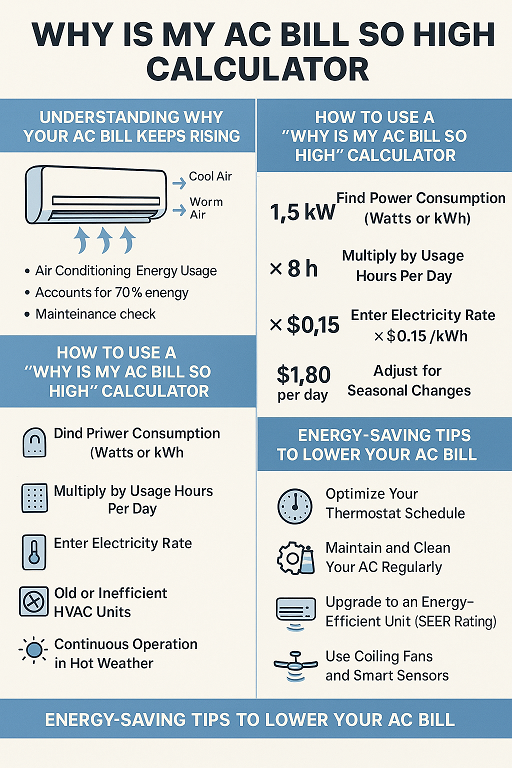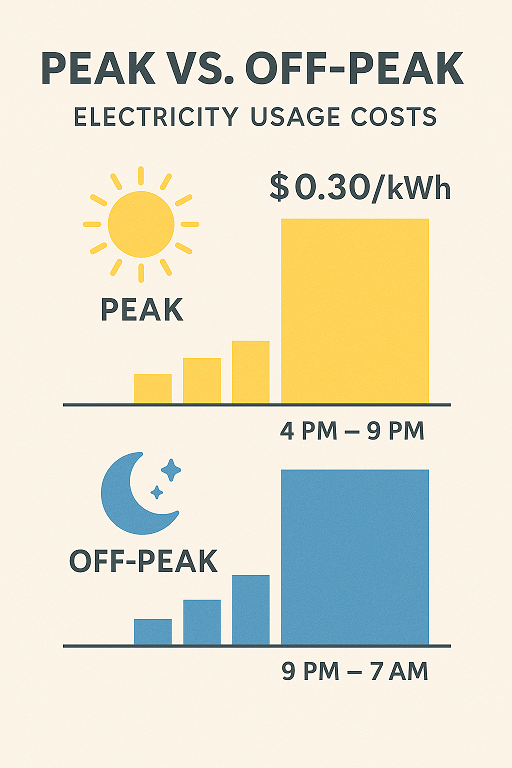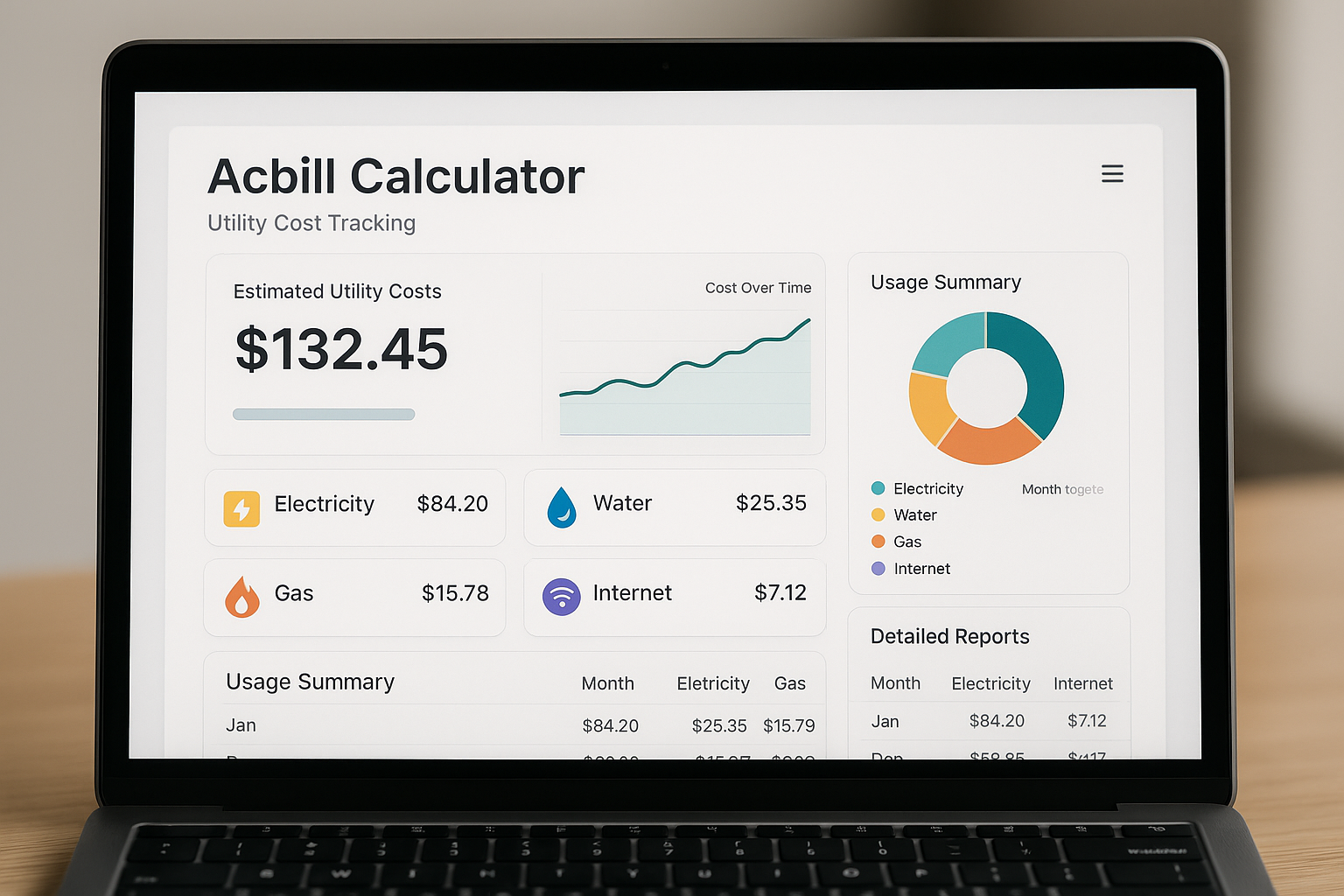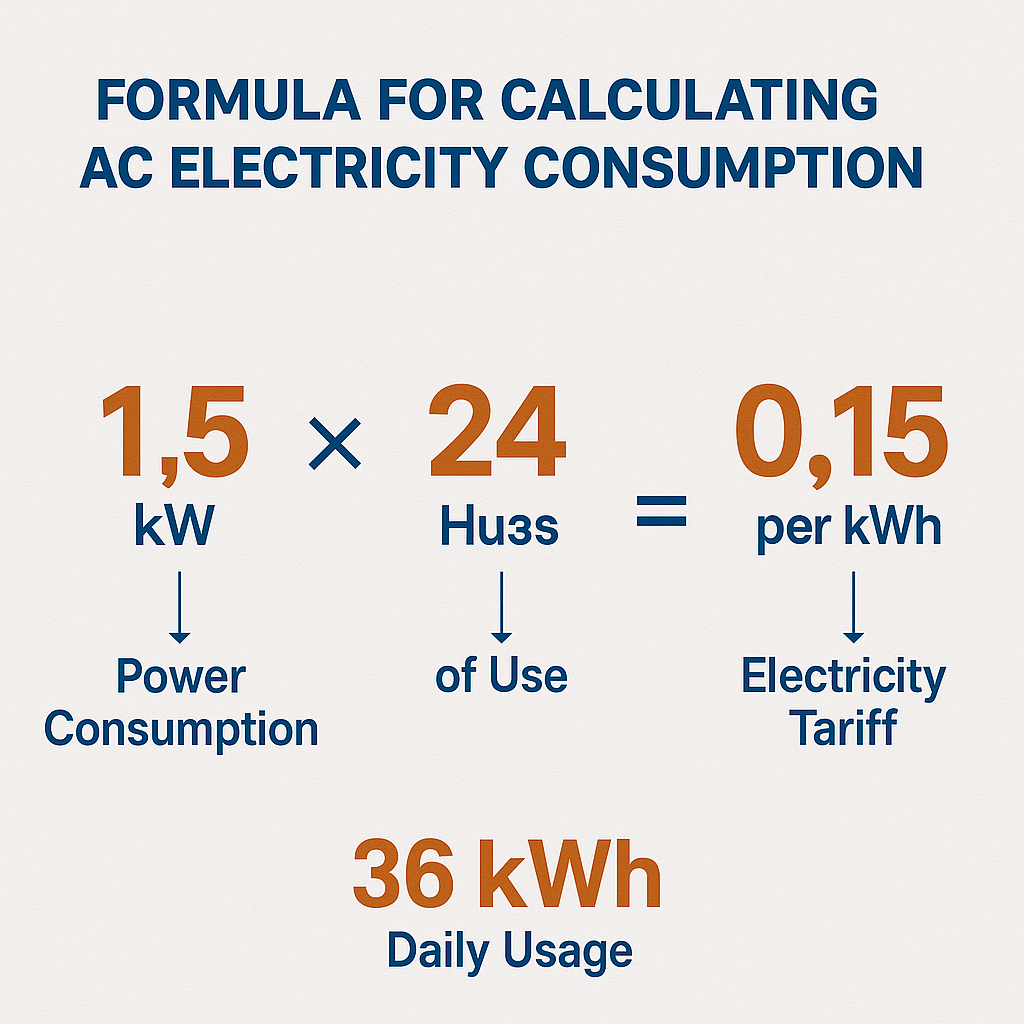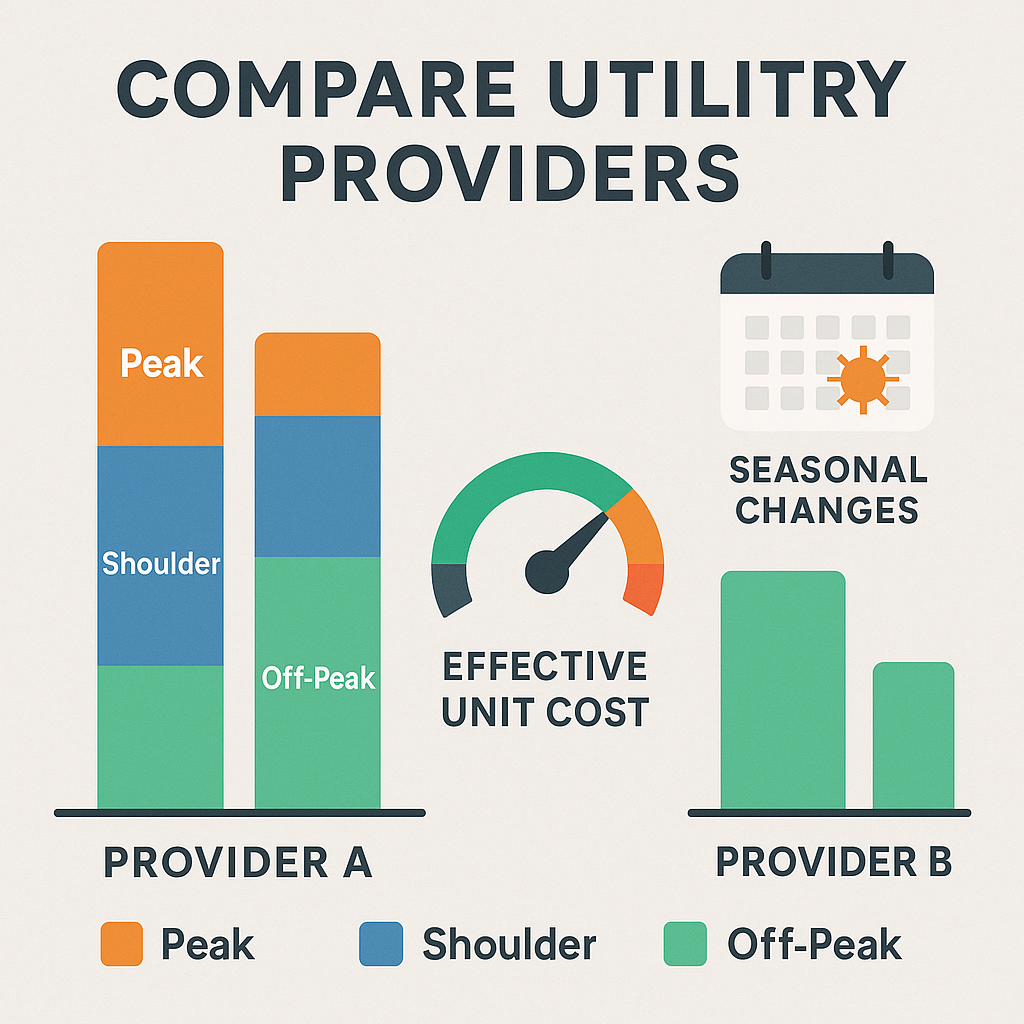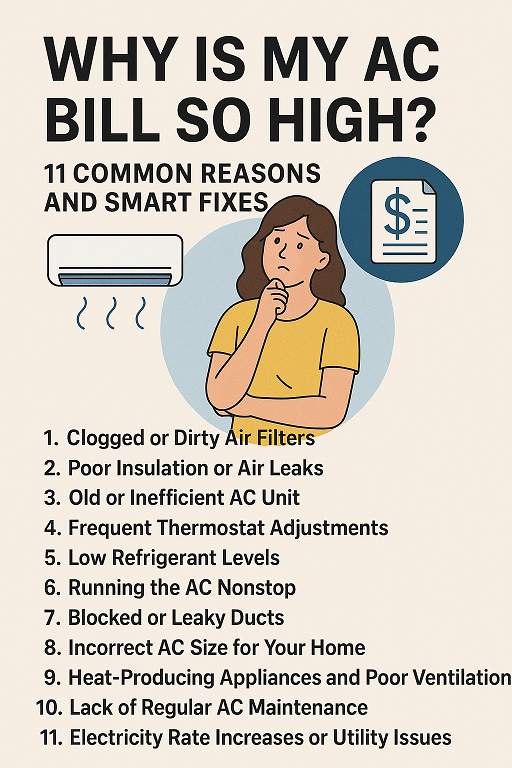
Why Is My AC Bill So High? 11 Shocking Reasons & Smart Fixes to Save Big
Understanding Why Your Energy Bill Spikes During Summer
Summer is full of sunshine, barbecues and... surprisingly high air conditioning bills. You are not alone, when you think of opening your utility bill, your gasp. The most common question that many house owners ask themselves is, why is my AC bill high? It turns out that many minor things can be silently increasing your energy consumption: clogged filters or old thermostats.
Your air conditioner has been working hard to cool your home and when it is not functioning efficiently, it uses much more electricity. You should start by learning how your AC system works and what influences its performance to reduce the costs.
How Your Air Conditioner Consumes Electricity
The air conditioners consume electricity that drives the compressor, the fan and the condenser coils. As you pull the warm air out of your house it goes through coils of refrigerant that absorbs the heat and sends cool air back out of the air conditioner. This cycle continues and continues. The more effort your AC has to exert to keep the temperature at the level that you desire, the more energy you use and the larger your bill.
The Relationship Between Temperature Settings and Power Usage
Every degree lower on your thermostat costs you about 3 percent of your cooling bill. By keeping your house at 68deg F rather than 75deg F, you may be spending as much as 25 percent more per month. Most homes should use the ideal temperature 78degF at home, and 82degF at away.
Top Reasons Why Your AC Bill Is So High
1. Clogged or Dirty Air Filters
A blocked filter inhibits the passage of air and you will be compelling your AC to overwork. Washing or change of filters after 30-60 days can increase efficiency up to 15 percent.
2. Poor Insulation or Air Leaks
Your walls, attic or windows can have leaks and allow cool air to escape, even when you have an efficient AC. This causes your unit to run longer to achieve the desired temperature.
3. Old or Inefficient AC Unit
Older units (10 or older) can have lower SEER (Seasonal Energy Efficiency Ratio), indicating that they consume more electricity to cool the same amount.
4. Frequent Thermostat Adjustments
Switching the thermostat back and forth all the time is not only confusing your system but it is also using more energy. Rather, seek a comfortable environment and stay with it.
5. Low Refrigerant Levels
When the refrigerant in your system is low, then your system will not be able to cool. Professional HVAC technician is normally needed to check and fill the system to resolve this problem.
6. Running the AC Nonstop
When your AC operates continuously it could mean that you have an undersized system or a poorly insulated system or a broken thermostat.
7. Blocked or Leaky Ducts
Ductwork cracks and leaks can also use up to 30 percent of the cooled air before it gets to your rooms.
8. Incorrect AC Size for Your Home
A unit that is too small runs continuously; a unit that is too large short-cycles, wastes energy and wears out sooner.
9. Heat-Producing Appliances and Poor Ventilation
Turning on ovens, dryers, or even lighting when indoor temperatures are at their highest can increase temperatures, causing your AC to strain.
10. Lack of Regular AC Maintenance
Missing an annual tune-up will decrease the efficiency of your system and also decrease the longevity of your unit.
11. Electricity Rate Increases or Utility Issues
In some cases, it is not your AC that is a problem but the power company. Increased rates of electricity can skyrocket your bill with no change in your life.
How to Lower Your AC Bill Without Sacrificing Comfort
Adjusting Your Thermostat Smartly
Adjust your thermostat to 78 deg F on a daytime and turn it up when you are away. Automate these changes by using a smart thermostat.
Sealing Air Leaks and Improving Home Insulation
Weather strip the doors and windowed areas and think about insulating the attic to retain cool air.
Using Fans to Support Cooling Efficiency
Ceiling fans pump cool air and you can turn up the thermostat by several degrees without feeling a difference.
Investing in a Smart Thermostat
Smart thermostats learn your routine and temperature preferences, and can save you up to 10 percent in cooling bills each year.
Regular AC Maintenance Tips
Professionally service the tuner at least once a year. A technician is able to wash coils and inspect ductwork and refrigerant levels.
Upgrading to an Energy-Efficient AC Model
Find ENERGY STAR models with SEER ratings of 16 or above. They are expensive to install, but use up to 30 percent less energy.
How Weather and Lifestyle Impact Your AC Costs
Climate Factors That Influence Energy Consumption
Areas that have a high humidity or extreme temperatures predispose air conditioners. Landscaping, shade and window treatment can do wonders.
Daily Habits That Quietly Raise Your Energy Bill
Having blinds open all day, using appliance at peak times, or running appliances at the same time as your AC are all part of your bill.
Professional Energy Audit: Is It Worth It?
Benefits of Scheduling a Home Energy Audit
With an energy audit, you can find out the places in your home that are wasting energy. Infrared cameras and airflow tests help the technicians identify the areas of inefficiency.
What to Expect During the Inspection
Expect complete inspection of insulation, ductwork, vents, and heating, ventilation, and air conditioning. The majority of homeowners reclaim audit expenses in one year by saving.
Frequently Asked Questions (FAQs)
Q1. Why do I leave my AC on all the time when it is cold outside?
Your system can overwork because of a defective thermostat, bad insulation, or foul coils.
Q2. What is the answer to the question: is my AC energy efficient?
See the SEER rating; the lower it is the less efficient.
Q3. What temperature should I set my air conditioner at to save money?
Maintain it at 78degF at home and 82degF out.
Q4. In what ways do I service my air conditioner?
At least once in a year - preferably before the summer sets in.
Q5. Will a bill reduction be achieved by closing unused room vents?
No. It actually pressurizes ducts and is counter-productive to efficiency.
Q6. Do ceiling fans qualify to be left on to reduce AC?
Yes Fans aid in moving cool air, which means you can increase the thermostat a notch higher.
Conclusion: Keep Cool Without Burning Through Your Wallet
If you’ve been asking yourself, “Why is my AC bill so high?” — the answer lies in maintenance, efficiency, and smart energy habits. By inspecting your filters, sealing leaks, and upgrading outdated systems, you can stay comfortable without draining your wallet.
